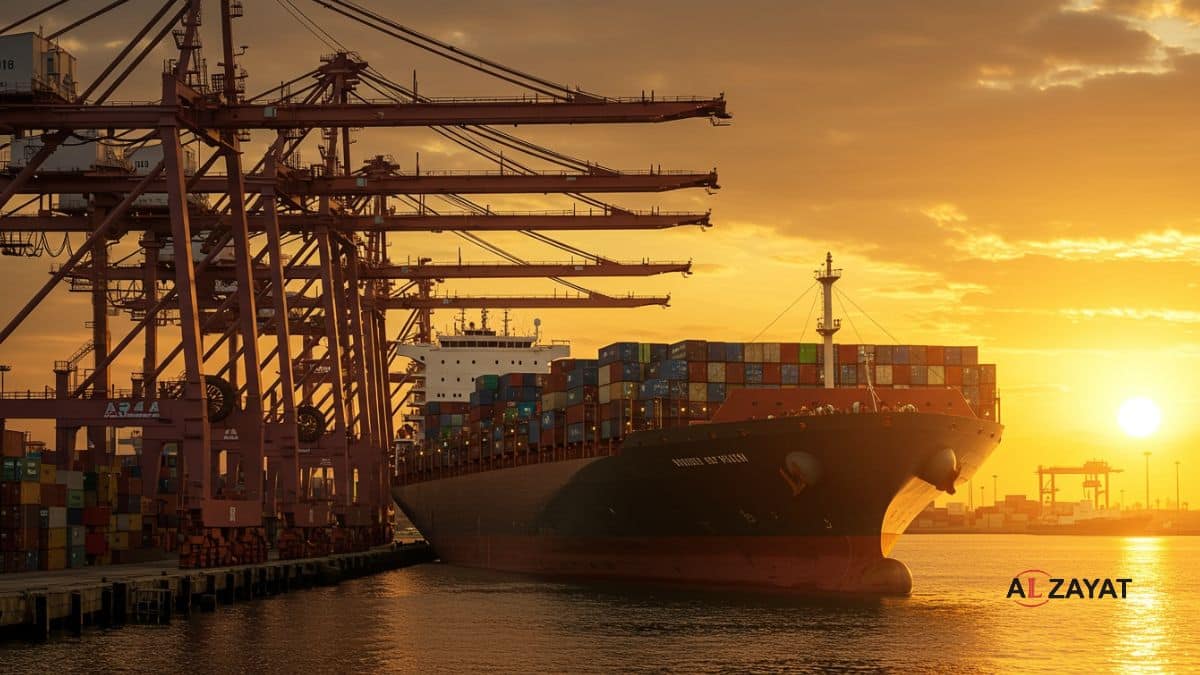Cross-border commercial transactions in Egypt are a primary driver of economic growth, connecting Egyptian companies to global markets and attracting crucial foreign investment. These transactions encompass everything from import-export contracts to international distribution agreements and joint ventures. However, these activities are fraught with legal risks arising from differences in legal systems, business cultures, and regulations between nations. Consequently, navigating this landscape requires more than just business acumen; it demands a solid legal foundation.
A Guide to Cross-Border Commercial Transactions in Egypt
At Alzayat Law Firm – Egypt’s First International Law Firm, we are at the forefront of providing legal counsel in this complex field. Our mission is to provide this foundation through airtight contracts and powerful representation in dispute resolution, allowing our clients to operate with confidence on the global stage. Contact us today for a confidential consultation.
Key Legal Challenges in International Commercial Transactions
Understanding the unique challenges involved in global commerce is the first step toward overcoming them effectively. A proactive legal strategy anticipates these issues from the outset.
1. Navigating Conflict of Laws and Jurisdictional Issues
This is the central challenge in all cross-border commercial transactions in Egypt. Which country’s law will govern the contract? And in which country will a lawsuit be filed if a dispute arises? Failing to clearly define these points in the contract can lead to costly legal battles over procedure before the core dispute is even addressed. International bodies like the Hague Conference on Private International Law work to create conventions that simplify these matters.
2. Adhering to Customs and International Trade Regulations
Every nation has a complex set of regulations governing the import and export of goods. This includes tariffs, packaging requirements, and certificates of origin. Adherence to these rules is mandatory, and non-compliance can result in significant fines and delays. Global standards are often guided by organizations like the World Trade Organization (WTO).
Our Legal Services to Support Your Cross-Border Transactions
We offer an integrated suite of legal services designed to facilitate and protect your commercial interests. Our expertise in cross-border commercial transactions in Egypt is holistic and focused on delivering results.
Drafting International Contracts and Regulatory Compliance
- International Sales of Goods Contracts (CISG): We draft agreements that align with the UN Convention on Contracts for the International Sale of Goods and international trade standards, such as the Incoterms rules published by the International Chamber of Commerce (ICC).
- Distribution and Agency Agreements: We define the rights and obligations of distributors and agents in foreign markets, ensuring your commercial interests are protected.
- Regulatory Compliance Counsel: We provide advice on compliance with Egyptian customs and banking regulations, and we help you prepare the necessary documentation to ensure a smooth flow of goods and funds across borders.
Dispute Resolution for International Commerce
In most cross-border commercial transactions in Egypt, arbitration is the preferred method for resolving disputes because it is neutral and internationally enforceable under the New York Convention. Our team has extensive experience representing clients before major arbitral bodies like the International Chamber of Commerce (ICC) and the Cairo Regional Centre for International Commercial Arbitration (CRCICA).

Facilitating global trade is at the heart of our work with cross-border commercial transactions in Egypt, stamped with the Alzayat Law Firm – Egypt’s First International Law Firm logo.
Frequently Asked Questions (FAQ)
What law should govern my international contract?
This depends on the negotiating power of the parties. It is often preferable to choose the law of a neutral and commercially advanced country (such as Swiss or English law). Most importantly, the law must be clearly specified in the contract to avoid any future dispute on this point.
Is arbitration better than local courts for international disputes?
Yes, in most cases. Arbitration awards are enforceable in more than 160 countries under the New York Convention, whereas it may not be possible to enforce a local court judgment abroad. Arbitration also provides for expert, neutral arbitrators and confidential proceedings.
What are Incoterms?
Incoterms are a set of pre-defined commercial terms published by the International Chamber of Commerce. They are widely used in international commercial transactions to clearly communicate the tasks, costs, and risks associated with the transportation and delivery of goods. Using them in your contracts helps to avoid misunderstandings.

